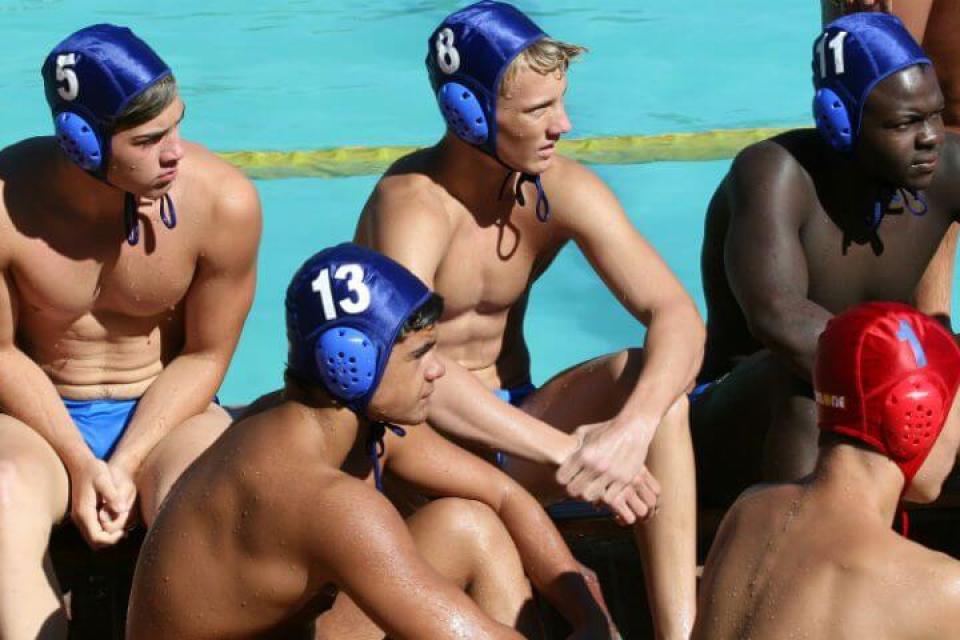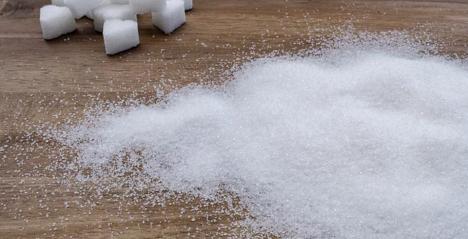To be a scuba diver you don’t have to be an Olympic swimmer, in fact you do not need to be a very strong swimmer at all, but having some stamina in the water and feeling relaxed helps a lot.
On the open water course the swim test consists of a 300-meter snorkel or a 200-meter unaided (without the use of a mask, snorkel or fins), nonstop swim conducted in the swimming pool or in the ocean in calm conditions.
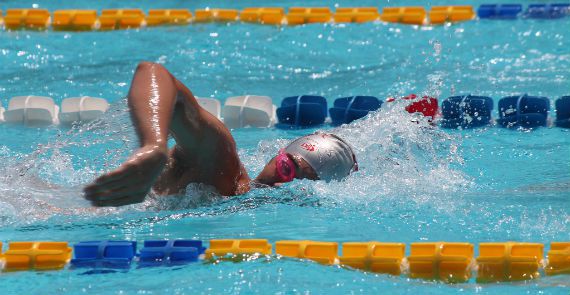
Though the distance might seem like a lot if you are not a regular swimmer the good news is the swim is not timed and you can swim whatever style you like: front crawl, breast stroke, back stroke etc, you can even swap from one style to the other if it helps. The point is not to judge your speed or style, but to see if you can cover the distance while staying relaxed.
The swim is followed by treading water for 10 minutes and/or floating without holding unto anything for support, this one is timed, but as you are staying in one spot this should not be a problem. You can even have a break in between the swim and the float if you feel you need it.
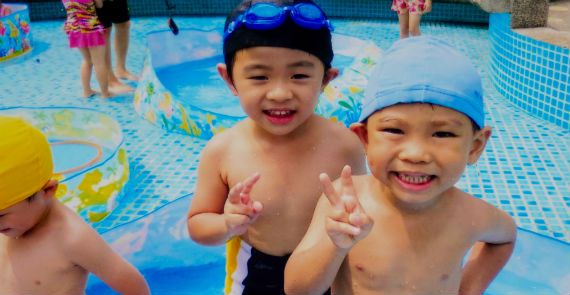
People sometimes wonder why you need to be able to swim at all if you will be wearing equipment that makes you float and allows you to breath even when submerged. This is true, however even though statistically speaking scuba diving has one of the highest safety records out of all adventure sports, accidents can happen.
You learn on your open water course how to care for your equipment and how to check for problems pre-dive to make sure everything is in proper working order, but let’s say when you surface at the end of a dive your Buoyancy Control Device (BCD) or inflatable jacket does not hold air, you will learn how to stay calm and signal for assistance to the shore or boat, but maybe it takes a few minutes for help to arrive, this is when you need to be able to tread water or float!
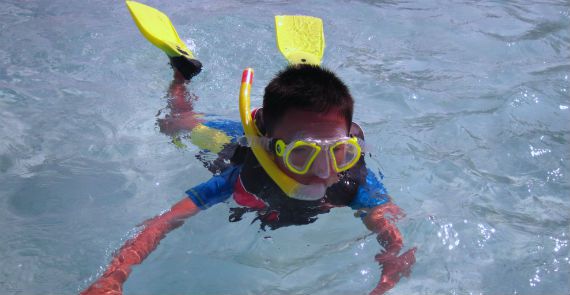
It is also assumed that if you put the effort into gaining a diving certification that you will perhaps continue to dive, hopefully enjoy it and therefore start spending more time around water. More time around water increases the chance of accidently falling in and having to swim back to dry land or keep your head above water until help arrives.
So just remember, it is okay if you are not a very athletic swimmer and it is perfectly normal to feel nervous when learning how to scuba dive, our instructors know through experience how to help people overcome their fears.
Over the years I have had to help lots of people overcome various fears when learning to dive, agoraphobics, claustrophobics, people who have had a near drowning experience as a child, fear of fish, sharks, jellyfish even coral.
Whatever it is we are happy to try and help you overcome it, just be aware that there is a lot to take in when going for a diving certification and your safety is paramount to us. The ocean can be an unforgiving environment so our advice is: if you are very uncomfortable in the water, get more comfortable first by swimming, snorkeling or doing other water sports under controlled calm conditions and when you feel more confident come and learn to dive!
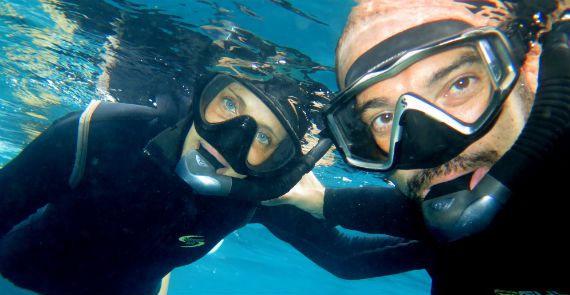
When you are ready you can book your scuba dive course with Orca Scuba by contacting us here. And for more information about diving visit our website or our Facebook page.
Brought To You By ExpatChoice.Asia

